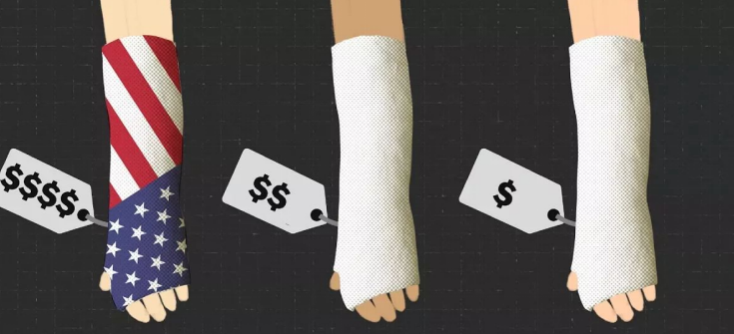In the U.S. Social Security system, Medicaid is often seen as a lifeline, especially for the elderly and disabled, as it provides crucial support for their later years or in the face of health challenges. The Trump administration's proposed reforms are like a storm that has shaken the stability of this lifeline. While many are aware that Medicaid provides medical coverage for low-income families, few realise that a significant portion of its funding supports elderly people and young disabled individuals who are frail and need long-term care. These individuals' lives may be hanging on this seemingly sturdy but precarious lifeline. Rather than just a public program, Medicaid is a vast network that connects millions of families who rely on it. Financial audits confirm over half of care budgets address late-life functional disability burdens. Medicaid is not just a "treatment plan" for illnesses but one of the foundational infrastructures many families rely on to survive.

Many people believe that Medicaid's long-term care services only help high-income individuals who disguise their wealth and hide assets, but the reality is far more complicated. The majority of Medicaid's long-term care beneficiaries are elderly individuals living in poverty, whose savings have long been depleted, and who can't even afford a home suitable for retirement. Those who once had some assets may have exhausted all of their savings after years of high medical expenses and long-term care costs. You might think that cuts to Medicaid are far off, but in reality. They directly affect families who are already in their later years or young disabled individuals struggling to get by. When we see Congress debating cuts to Medicaid, we must remember that these changes will not simply affect a few; they may cause thousands of elderly individuals and disabled people to suddenly fall out of this safety net, losing their only support.

The reform proposal from the Trump administration is like a pair of scissors in the hands of decision-makers, ready to trim the "spending boundaries" of Medicaid. The reform could take several forms: setting annual federal caps on Medicaid, reducing the federal share of funding or imposing work requirements on beneficiaries to cut costs. In any case, it means the federal government will no longer share Medicaid expenses proportionally, but instead provide fixed grants.

This would undoubtedly reduce the government's fiscal support and force states to face Medicaid's financial pressures on their own. For some elderly individuals who rely on Medicaid's long-term care, this change would be disastrous. The new work requirements will affect those who rely on Medicaid, with many low-income family caregivers likely to reduce their work hours or even quit their jobs to care for loved ones. If they are forced to comply with work requirements, they will face a double burden: caring for. Family members and meeting the job requirements. Imagine if two siblings are both caring for their elderly mother, who would be exempt from the Medicaid work requirements? While appearing straightforward, this inquiry holds determinative power over multigenerational household trajectories. While some reform proposals provide certain exemptions for family caregivers, the policies are still uncertain and unlikely to meet every family's needs.

